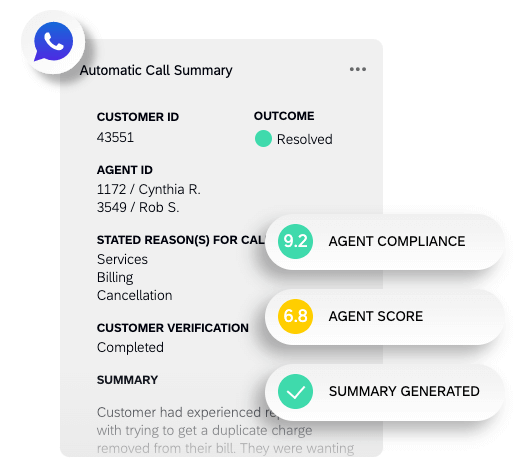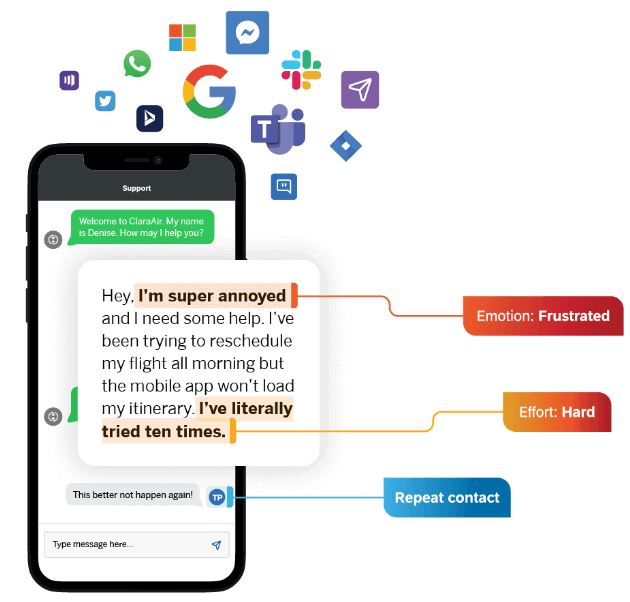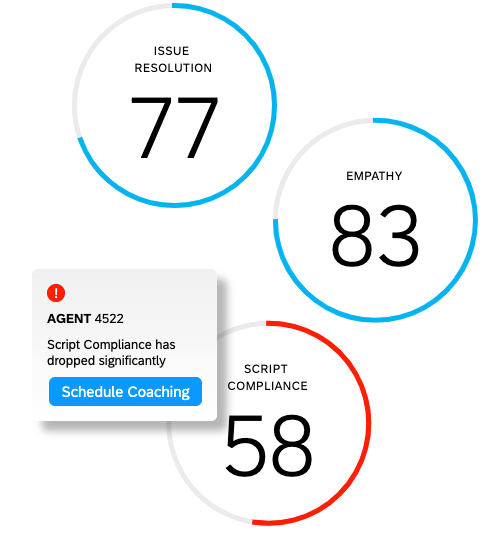What is sales automation?
Sales automation means taking elements of the sales process and delegating them to an automated tool. These elements are often the manual and time-consuming tasks your sales reps need to complete, such as emailing prospects, prioritising leads and reporting.
By taking the burden of the administrative tasks off your sales team’s hands, your sales reps can focus on the areas where technology can’t drive your leads down the sales funnel. Customer relationship management requires intuition and human connection, and by freeing up your sales reps’ time, you empower your team to build relationships and close deals more effectively.
Sales automation is made possible with a sophisticated sales automation tool, ideally powered by artificial intelligence and machine learning to help your system learn and refine over time.
Key benefits include:
- Reduce the time to sale: Automation can accelerate the sales process by offering personalised, programmed responses to get the right information to prospective customers as fast as possible, moving them more rapidly down the pipeline
- Better conversion rates: Backed by intensive data analysis and automation, your team can spend time on leads that have the best potential and streamline their sales processes
- Better insights: With automation, you can more effectively analyse your team’s performance and compliance, as well as identify opportunities for more effective action and prospects
- Lower the chance of lost leads: Your sales reps are only human, and keeping track of all sales opportunities manually means you’re likely to lose out on sales opportunities. Automation can ensure the right leads are handled at the right time, and keep track of all opportunities’ potential
- Lower cost per sale: Sales automation can make your team more productive and reduce time spent on administrative tasks, reducing your cost-per-sale and increasing revenue potential
- Increased sales team productivity: Your sales reps can spend time on high value tasks instead of low value but necessary ones such as scheduling, reporting, and reminders
See how Qualtrics XM Discover can help you boost your sales revenue
Examples of sales automation
Here are some examples of how sales process automation might work for you:
- Writing and sending emails: The manual tasks of putting together an email and sending them at the right time can be automated, with typical emails created in advance with templates and scheduled for specific points in the sales process. Sales automation software can help your team personalise these effectively so they don’t feel rote.
- Prioritising the sales pipeline: Rather than getting your sales team to sift through thousands of leads and manually determine their potential, your sales automation tool can score leads in accordance with your given criteria automatically. It can qualify leads for their interest based on their interactions with your business and personal profile. Your tool can scour customer data, feedback and call content to determine which leads have the best chance of conversion.
- Flag compliance issues: Part of the sales process is monitoring your sales team for their legal compliance and ability to work with scripts, but taking the time to review can draw resources away from working the pipeline. Sales automation software can improve script compliance and automatically review call and chat content for regulatory compliance, ensuring you’re guarding against any legal risk, while also freeing up your sales teams’ time.

- Spot potential customer churn: A good sales automation platform will be in tune with your customers’ behaviour and patterns and be able to flag when current customers might be lost. Given that increasing customer retention rates by 5% raises your profits by 25% to 95%, it’s important to make sure customers renew or repurchase, saving your team the trouble of having to replace lost revenue.
Why is sales automation important?
There are many reasons why sales automation needs to be part of your plan for this year and beyond. Here are just a few:
Your competitors are already doing it
Research for the 2019 Sate of Marketing Automation Survey report from Social Media Today found that 75% of all businesses already use at least one type of marketing automation tool to boost revenue and reduce burden. Your competitors are already using tools to get ahead, meaning you need to find technological solutions to stay on par.
You can fast-track your revenue growth
Automation can boost your revenue significantly. Hubspot reports that 61% of brands using automation reported that they exceeded revenue targets in 2020, while Hinge Research found that “high growth” businesses (or those that recently experienced exponentially high growth) were — were 9.6% more likely to have a highly mature sales automation strategy.
Using sales automation allows your sales reps to focus on selling, rather than admin, and the resulting effort pays financial dividends.
Your leads respond better when its personal
Your leads will respond preferably when they feel a connection with your business, but personalising at scale without creating extra burden for your sales team can be difficult. Sales automation can help you to automate manual processes such as introductory or follow-up emails to automatically draw leads further down the pipeline.
Epsilon found that triggered click rates perform 151.9% higher than business-as-usual messaging. Using software to automate personalised text messages and other outreach efforts can help your team be more effective and spend less time on administrative tasks.
Your sales team is being held back by inefficiency
LiveVox’s 2021 poll found that 51% of executives believe integration issues such as inefficient workflows and a lack of automation are critical barriers to achieving business goals. By using sales automation software with AI-driven conversation intelligence, you’re better able to understand what you should automate to improve both your customer and employee experience.
What features do I need from sales automation tools?
Sales automation tools can vary in their sophistication. When choosing a sales automation platform, you’ll need to consider what features you need and which processes you’d like to automate.
Choosing your sales automation software
When selecting your tool, consider:
- Do I just want to automate repetitive sales tasks, or do I need help defining leads for the sales funnel?
- Do I need a tool that can work across my sales and marketing teams and link to wider data collection and analysis?
- Do I need a tool that focuses purely on the customer side, or do I need something that can help me evaluate internal sales team members’ performance?
- Does this tool provide me with accurate sales forecasts and offer automated sales analysis?
- Can this tool automate feedback generation so I can understand customer satisfaction and its impact on sales?
- How does the tool use data for lead scoring, and what type of data can it integrate?
How do I automate my sales process?
Sales automation can take many forms, but ideally you can automate as much as possible across the prospective customer experience and across your internal teams’ work. This process will require a sales automation tool that can provide what you need, of course.
Here are some potential ways you could use sales automation across both sides of the sales coin.
Automating the online sales process
Identify which leads have the most potential
Feed your sales automation tool the data you have on your customers, creating sophisticated profiles that take into account past interactions, contact details such as email addresses, activity with your brand on social media platforms and more. See leads and customers’ emotion, intent and effort and upsell accordingly.

Use your tool to automatically evaluate which contacts are most likely to benefit from lead nurturing, and prioritise the leads with the most potential.
Nurture leads effectively
Send automatically-triggered messaging to leads that add value at the right point to push potential customers further toward a decision. Evaluate which messaging and actions make the most impact and replicate the process with new leads.
Respond to queries quickly
Reduce your response time by automatically sourcing and sending vital documents to potential customers, saving your sales team time and reducing their effort.
Understand customer behaviour
See the sales journey through data-driven insights and tweak the customer experience accordingly for better sales outcomes. Understand what drives customer behaviour and take action to course-correct lead generation.
Evaluate and implement customer feedback
Automatically send feedback surveys at the right time to unobtrusively get data on what transforms potential leads into qualified customers. Implement actions to improve your sales process and sales performance.
Automating everyday tasks
Assign leads automatically to the right person
Assign leads to the right sales rep, based on their industry, territory, interactions with your brand and their potential. Make sure the right person gets the lead to ensure you’re more likely to close.
Forecast effectively
See what’s working and what isn’t by taking data analysis to the next level. Use artificial intelligence to see where your sales productivity can improve and why your conversions have been successful (or not).
Generate in-depth reports and insights
Avoid confusion by using one sales automation platform across multiple teams, reducing the likelihood of lost information. Generate easily-understood reports on refined dashboards that help to drive sales decisions and accurately see your progress over time.
Automate admin and set reminders
Automate the tasks that can be made rote such as meeting scheduling and email updates, and set reminders for your team to take care of tasks that can’t be easily automated, such as checking in with customers personally.
Evaluate your team and support your reps
See how your team performs with in-depth linguistic and data analysis of their sales outreach. Give support to reps who are struggling by giving them appropriate leads and automating unnecessarily time-consuming tasks.

Automate your sales now
Qualtrics XM Discover uses complex conversational intelligence analysis to understand and nurture your sales leads and boost your sales team’s performance.
With XM Discover, you can:
- Automate call flow compliance: Automatically score your sales reps’ calls and improve script compliance and regulatory monitoring
- Automatically source high conversion opportunities: By analysing data from a wide variety of sources both owned and third party, you an automatically prioritise high-value and high likelihood to purchase opportunities, achieving revenue more rapidly
- Automatically flag high churn customers: Automatically flag when renewals are at risk by pinpointing high likelihood to churn accounts, using Natural Language Understanding (NLU) indicators
- Automate and personalise feedback: Use software to understand customer behaviour when making or refusing a purchase, based on call and chat data as well as automated post-interaction survey feedback
- And much more
Improve your visibility over your agents and your prospective customer pipeline, reduce time and burden and spend more time actively selling your business to your audience.
Try Qualtrics XM Discover now